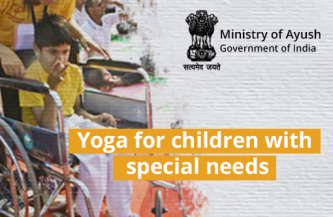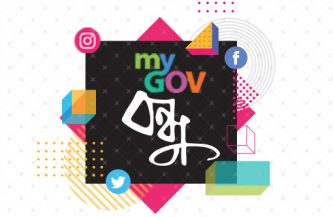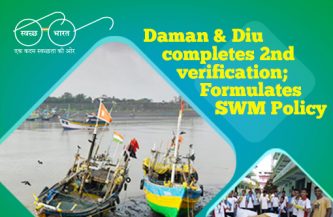Leadership & Commitment- Piyush Goyal

Prime Minister Narendra Modi’s illustrious track record in governance started two decades ago, from Gandhinagar during which he selflessly served first the people of Gujarat and since 2014 our nation. He was born in Vadnagar not far from Gandhinagar, a dilapidated town without basic amenities like electricity. Facing such adversity, he emerged as a sensitive human being who wanted to bring about change so that no child would have to study under a street lamp or sell tea, like he did, just to make two ends meet.
PM Modi’s journey of ‘Sewa and Samarpan’ started at the age of 17, when he left home to travel across the length and breadth of the country. His training as a RSS pracharak gave him a unique understanding of ‘Bharat’ and the people of India. PM Modi has emerged as the leader, who can work relentlessly every single day without taking a break. Today, he completes 20 years of public service as the head of an elected Government, first as Chief Minister of Gujarat and now as Prime Minister of India.
‘To build a tower that pierces through the sky, it is essential to first build a strong foundation’ – And that is what he did. He built a solid base that can withstand not just the weight of the structure but also the fury of adversities and adversaries that may be unleashed from time to time. While India progressed in its post-independence era, it was clearly inadequate to meet the aspirations of every citizen. And even in basic amenities, outcomes were poor and clearly insufficient in areas like health, sanitation and education.
PM Modi in 2014, inherited a weak economy, one amongst the ‘Fragile 5’, with deep distress in rural India and lack of trust in India’s Government after a series of scandals had come to light. India needed a complete makeover. PM Modi, confronted with several challenges, demonstrated his decisive leadership and strong commitment to ensure that the benefits of progress reach the poorest of the poor without discrimination, taking the entire country along. His guiding philosophy has been ‘Sabka Saath, Sabka Vikas, Sabka Vishwas, Sabka Prayas’.
Though he has a deep understanding of India’s problems and their solutions, PM Modi is a very good listener. Always open to feedback and constructive criticism. He is a fast learner and is constantly ‘upgrading’ his blueprint for Bharat. Right from the time he become the Chief Minister of Gujarat, he brought about fundamental changes in the way Government works. His focus on ‘Speed, Skill and Scale’ were evident in several projects he took up like 24×7 power to every home and farm, ensuring water to parched areas of Saurashtra, expanding infrastructure of ports, highways, gas grids, and promoting industries big and small. His use of technology driven governance to bring transparency and high levels of probity is a hallmark.
When PM Modi talked about ‘Energy self-reliance’ in his Independence Day address in August 2021, he was only articulating to the nation a vision he has harboured since his Chief Ministerial days in Gujarat. The approach was logical and holistic. He first ensured that there is ‘Power for All’, then focused on improving efficiency. By promoting drip irrigation to reduce power consumption, he made farmers conscious against wasteful use of electricity and took water to the remotest areas through the ‘Sauni Yojana’. His experience in energy efficiency in Gujarat laid the foundation for the UJALA Scheme. As the LED revolution spread across India, retail prices of LEDs plummeted to only 10% of the original cost due to economies of scale. Today, LED bulbs have become the norm with estimates of nearly 200 crore bulbs being sold in India with savings upto Rs. 40,000 crore and massive carbon emissions reduction. The overall impact has been that it helped make the environment cleaner, saved vital foreign exchange and reduced the power bills, particularly of the middle class.
Another case in point is a program launched in 2018, focused on last mile saturation of schemes like Jan Dhan, electricity connection, LPG, etc. for which about 44,000 villages, carefully identified to cover the most marginalized sections of society in aspirational districts. A massive ‘Jan Sampark’ initiative saw representatives from the Center travel to these districts to ensure full coverage of these schemes. Eventually, all these schemes were made available to every household across India.
PM Modi’s long term vision for India can easily be seen in his focused implementation of one scheme after another. Can we imagine facing COVID-19 without having connectivity through Jan Dhan Accounts, Aadhaar, Direct Benefit Transfer, Digital Transactions and free healthcare to 50 crore Indians through Ayushman Bharat? The successful implementation of these initiatives laid the foundation for providing timely welfare during these unprecedented times.
The untiring efforts of PM Modi have accorded India a special status in the global community. The world now looks at India as a reliable and trusted partner, and a driving force in the growth of the world economy. We as a nation have made significant strides in several fields like sports, science, trade, innovation and space, giving the country a place of pride in the world.
PM Modi’s life as a ‘Karmayogi’ serves as an inspiration to all Indians. His journey from a tea seller to Prime Minister illustrates that with hardwork and dedication anything is possible. There is a growing feeling in India today that ‘Modi hai, to Mumkin hai’. Naya Bharat needs our collective ‘Karma’. PM Modi has set the benchmark for the nation to follow. Now, it is upon 135 crore Indians to adopt ‘Sewa and Samarpan’ for building a ‘New India’.
(The author is Minister of Commerce & Industry, Consumer Affairs, Food & Public Distribution and Textiles, Government of India)
[The Article was first published in Times of India.]





